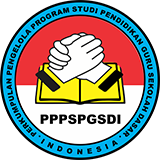Publication Ethic
PUBLICATION ETHICS
Educational Journal of Bhayangkara (EDUKARYA) follows the ethical standards for publication established by the Committee on Publication Ethics (COPE). The following statements describe the ethical behavior of all parties involved in the publication process: authors, editors, reviewers, and the publisher.
- Duties of Authors
Reporting Standards
Authors of original research must present an accurate account of the work performed as well as an objective discussion of its significance. The paper should contain sufficient detail and references to permit others to replicate the study. Fraudulent or knowingly inaccurate statements constitute unethical behavior and are unacceptable.
Data Access and Retention
Authors may be asked to provide the raw data related to the manuscript for editorial review and should be prepared to provide public access to such data if practicable. Authors are expected to retain such data for a reasonable time after publication.
Originality and Plagiarism
Authors must ensure that their work is entirely original and that the work and/or words of others have been appropriately cited or quoted. All manuscripts will be screened using plagiarism detection software prior to review.
Multiple, Redundant, or Concurrent Publication
Authors should not publish manuscripts describing essentially the same research in more than one journal or primary publication. Submitting the same manuscript to multiple journals concurrently constitutes unethical publishing behavior.
Acknowledgement of Sources
Proper acknowledgment of others' work must always be given. Authors should cite all publications that have influenced the nature of their work.
Authorship of the Paper
Authorship should be limited to those who have made a significant contribution to the conception, design, execution, or interpretation of the research. All those who have made substantial contributions should be listed as co-authors. The corresponding author must ensure that all co-authors have approved the final version of the manuscript and agree to its submission.
Disclosure and Conflicts of Interest
Authors must disclose any financial or other substantial conflicts of interest that could be perceived to influence the results or interpretation of their manuscript. All sources of financial support must be acknowledged.
Fundamental Errors in Published Works
When an author discovers a significant error or inaccuracy in their own published work, they must promptly notify the journal editor or publisher and cooperate to correct or retract the paper.
Hazards and Human or Animal Subjects
If the work involves hazardous materials, procedures, or equipment, or involves human or animal subjects, the author must clearly identify these in the manuscript and ensure that all ethical approvals have been obtained.
- Duties of Editors
Fair Play
Editors evaluate manuscripts based on their intellectual content without regard to race, gender, sexual orientation, religious belief, ethnic origin, citizenship, or political philosophy of the authors.
Confidentiality
The editor and editorial staff must not disclose any information about a submitted manuscript to anyone other than the corresponding author, reviewers, potential reviewers, other editorial advisers, and the publisher.
Disclosure and Conflicts of Interest
Unpublished materials disclosed in a submitted manuscript must not be used in an editor’s own research without the express written consent of the author.
Publication Decisions
The editor is responsible for deciding which submitted articles should be published. The decision is guided by the validation of the work, its significance to researchers and readers, and the journal’s policies. Legal requirements regarding defamation, copyright infringement, and plagiarism shall also be considered.
Review of Manuscripts
Editors must ensure that each manuscript is initially evaluated for originality. Editors should organize and use the peer review process fairly and transparently, selecting qualified reviewers without conflicts of interest.
- Duties of Reviewers
Contribution to Editorial Decisions
Peer review assists editors in making editorial decisions and helps authors improve their manuscripts through constructive feedback.
Promptness
Reviewers who feel unqualified to assess a manuscript or unable to complete the review promptly must inform the editor and withdraw from the review process.
Standards of Objectivity
Reviews must be conducted objectively. Personal criticism of the author is inappropriate. Referees should clearly express their views with supporting arguments.
Confidentiality
All manuscripts received for review must be treated as confidential documents. They must not be shared or discussed with others except as authorized by the editor.
Disclosure and Conflicts of Interest
Privileged information or ideas obtained through peer review must be kept confidential and not used for personal advantage. Reviewers should not evaluate manuscripts where conflicts of interest exist due to relationships with the authors, companies, or institutions.
Acknowledgement of Sources
Reviewers should identify relevant published work that has not been cited by the authors. Any statement that an observation, derivation, or argument has been previously reported should be accompanied by the relevant citation. Reviewers should also notify the editor of any substantial similarity or overlap between the manuscript and any other published work.
- Publisher’s Responsibilities
The publisher of Educational Journal of Bhayangkara (EDUKARYA) ensures that the journal adheres to the principles of academic integrity and transparency. The publisher works closely with editors and reviewers to maintain ethical standards and is committed to investigating and addressing any instances of unethical conduct or publication malpractice.









